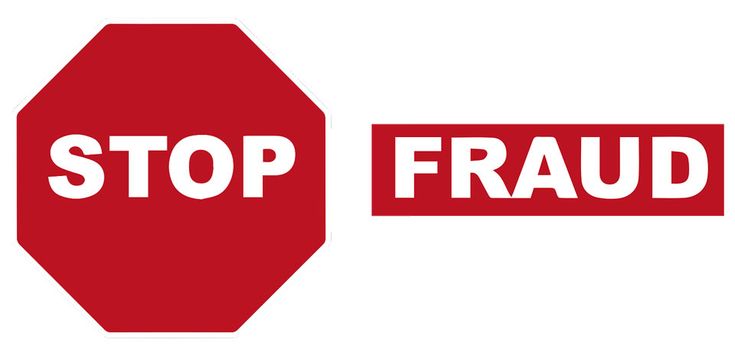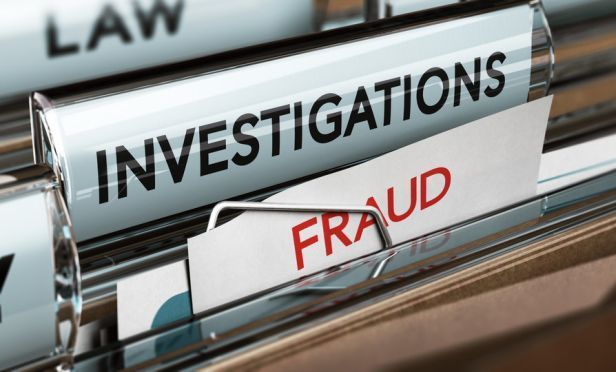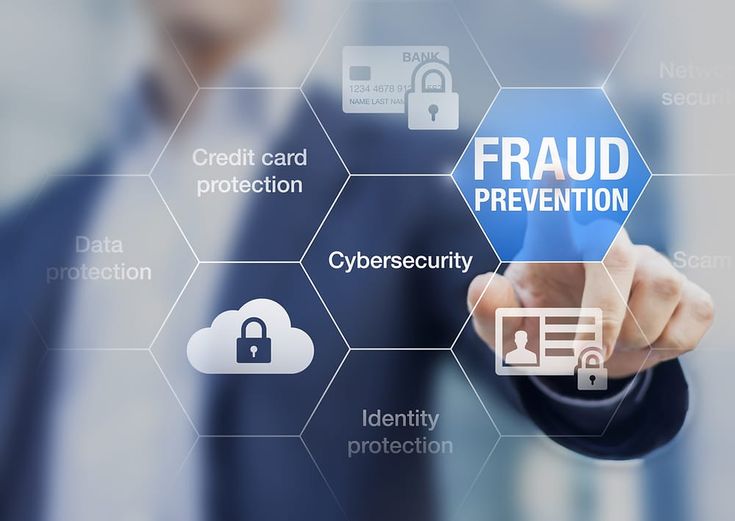A complete guide on how to detect & prevent fraud
Fraud is a serious issue that can cause big problems if not addressed. Knowing the signs and how to prevent it is essential for protecting your finances and reputation. Fraud involves tricking someone for personal gain, often with harmful results. Here’s how to spot and fight it effectively.

What is fraud?
Fraud is when someone deceives another person to gain an unfair or illegal advantage. It means tricking someone to gain an unfair or illegal benefit. It often involves lying or hiding the truth to mislead others. In our connected and fast-moving world, fraud is a common threat. It affects individuals, businesses, and economies everywhere. From identity theft to corporate embezzlement, fraud takes many forms, each with serious consequences.
The different types of fraud
Personal fraud
Identity theft
Identity theft is when someone steals personal information, like Social Security numbers or bank details, to commit fraud, potentially leading to financial loss and credit damage.
Credit card fraud
This type of fraud happens when someone uses another person’s credit card information without permission. It can result in unauthorized purchases or withdrawals, causing financial loss to the cardholder.
Financial fraud
Ponzi schemes
Ponzi schemes are fraudulent investment scams promising high returns with little risk to investors. The scheme pays returns to earlier investors using the capital of newer investors, eventually collapsing when new investments stop.
Insider trading
Trading stocks or other securities based on non-public, material information about the company is known as insider trading. This activity is considered both illegal and unethical as it provides an unfair advantage to individuals who have insider knowledge.
Corporate fraud
Embezzlement
Embezzlement occurs when someone in a trusted position within a company illegally takes money or property for their own use. This type of fraud often involves falsifying records to cover up the theft.
Accounting fraud
Accounting fraud involves manipulating a company’s financial statements to present a false picture of its financial health. This can mislead investors and regulators, leading to significant financial losses when the true situation is revealed.
Other notable types

Insurance fraud
Insurance fraud happens when someone deceives an insurance company to receive payouts they are not entitled to. This can involve false claims or exaggerating the extent of damages or injuries.
Bank fraud
Bank fraud includes a range of illegal activities aimed at defrauding a bank or its customers. Examples include check fraud, mortgage fraud, and phishing scams to obtain bank account details.
What types of fraud should you protect your business from?
Fraud poses a significant threat to businesses today, with advancements in technology making it easier than ever for cybercriminals to exploit vulnerabilities. To protect your business effectively, a proactive approach to fraud prevention and identity theft protection is essential.
Cyberattacks are among the most frequent types of fraud, as online activity dominates business operations. Criminals can access sensitive information by hacking networks or using social engineering tactics, making strong cybersecurity defenses a necessity.
Here are key types of fraud your business should be safeguarded against:
Phishing and pharming
Phishing emails often lure users with “urgent” prompts to download software or click suspicious links. Pharming takes this a step further: a user is redirected to a fraudulent website where they’re asked to enter their credentials. These credentials are then harvested and potentially sold on the Dark Web for identity theft schemes.
Large-scale pharming attacks have targeted financial institutions, leading to millions in damages from exposed data. Companies often face costly repercussions from data breaches, including legal fees and customer protection plans to shield victims from potential identity theft.
Vendor fraud
Vendor fraud targets your business’s payment processes. Scammers infiltrate a vendor’s email, posing as a legitimate contact and requesting “updated” bank information. If successful, every payment intended for the real vendor goes to fraudsters instead. Our recent survey highlights vendor fraud as one of the most common threats facing businesses today.
CEO fraud
In CEO fraud, scammers impersonate top executives and request sensitive information or urgent fund transfers. Employees, believing they’re assisting their CEO, may unknowingly facilitate substantial losses. Without rigorous security checks, the damage is often done before anyone detects the fraud. Reimbursing stolen funds is rare, even with identity protection services, and leaked data may already be circulating on the Dark Web.
Fraud not only impacts your finances but also damages your business’s reputation. By implementing comprehensive fraud protection services, you can safeguard your business against these costly and damaging attacks.
The legal perspective on fraud
Fraud is a serious crime according to the law. Legal systems around the world have strict rules and regulations to deal with fraud. Those found guilty of fraud can face severe penalties, including fines and imprisonment. The legal framework aims to protect victims and deter potential fraudsters by enforcing stringent laws and regulations.

Consequences of committing fraud
Legal penalties
Committing fraud carries serious legal consequences. Guilty individuals face heavy fines and imprisonment. The severity of the penalties often depends on the scale and impact of the fraud, but even minor fraud cases can result in substantial legal repercussions.
Reputational damage
Beyond legal penalties, those convicted of fraud suffer from long-lasting reputational damage. This can make it difficult for them to rebuild trust with others, both personally and professionally. A damaged reputation can lead to social stigma and challenges in finding employment or business opportunities.
Financial losses
Fraud results in heavy financial losses for both individuals and businesses. Perpetrators may be required to pay restitution to their victims, covering the losses incurred. For businesses involved in fraud, the financial impact can include lost revenue, legal costs, and compensation to affected parties.
Professional consequences
Professional consequences are also significant. Individuals found guilty of fraud may face job loss and difficulty securing future employment. For professionals such as accountants, lawyers, or executives, a fraud conviction can result in the loss of professional licenses or certifications, ending their careers in their respective fields.
Key elements required to prove fraud
False statement or misrepresentation
To prove fraud, it must first be shown that there was a false statement or a significant misrepresentation of fact. This means that the fraudster provided information that was untrue or misleading.
Knowledge of falsity
The next element is that the person committing the fraud must have known that the statement was false. This shows intent to deceive rather than a simple mistake or error.
Reliance by the victim
The victim must have relied on the false statement. This means that the victim believed the misleading information and acted on it, thinking it was true.
Resulting harm or loss
Finally, there must be some form of harm or loss suffered by the victim as a result of the fraud. This could be financial loss, damage to reputation, or other negative consequences. Proving this harm is crucial in establishing that fraud occurred.
How fraud is detected

Warning signs and red flags
Detecting fraud often starts with noticing warning signs and red flags. Common indicators include unusual financial transactions, discrepancies in records, and sudden changes in behavior.
For example, employees living beyond their means or a business experiencing unexplained financial shortfalls can be signs of fraud. Regularly monitoring financial activities and staying alert to these red flags can help in early detection.
Role of forensic accounting
Forensic accounting has an important role in uncovering fraud. Forensic accountants receive training to go beyond the numbers and spot suspicious activities.
They analyze financial statements, track transactions, and gather evidence to build a case. Their expertise is essential in detecting complex fraud schemes that might not be obvious through routine audits.
Technology in fraud detection
Detecting fraudulent activity has become possible through the use of technology, which involves analyzing large volumes of data to identify patterns and irregularities.
Machine learning and artificial intelligence are particularly effective in identifying potential fraud by learning from historical data and flagging suspicious transactions. Additionally, cybersecurity measures help protect sensitive information from being accessed or manipulated by fraudsters.
Tips to prevent fraud on every level
Best practices for individuals
Individuals can protect themselves from fraud by safeguarding personal information, regularly monitoring financial accounts, and being cautious with online activities.
Using strong passwords and enabling two-factor authentication can add an extra layer of security. It’s also important to be skeptical of unsolicited communications and offers that seem too good to be true.
Corporate governance and internal controls
Businesses can stop fraud by setting up strong corporate governance and internal controls. This involves creating clear policies and procedures, doing regular audits, and making sure that responsibilities are divided properly.
Building a culture of ethics and accountability within the organization can discourage employees from doing fraudulent activities. It’s also important to train staff to recognize and report suspicious behavior.
Legal and regulatory frameworks
Legal and regulatory frameworks play a vital role in fraud prevention. Governments and regulatory bodies establish laws and guidelines to deter fraudulent activities and protect consumers and businesses.
These frameworks provide mechanisms for reporting fraud, prosecuting offenders, and recovering losses.
Famous fraud cases
Studying major fraud cases helps us understand the methods used by fraudsters and the consequences of their actions. For example, the Enron scandal involved massive accounting fraud that led to the company’s collapse and significant financial losses for investors.
Another notable case is the Bernie Madoff Ponzi scheme, which defrauded investors of billions of dollars over several decades.
Analysis of the impact and resolution
Analyzing the impact of major fraud incidents reveals the extensive damage they can cause. Financial losses, job losses, and damaged reputations are common outcomes.
The resolution of these cases often involves lengthy legal battles, restitution to victims, and changes in regulations to prevent similar occurrences in the future. Learning from these cases helps improve fraud detection and prevention strategies.
The impact of fraud
Financial and emotional impact on individuals
Fraud can have devastating financial and emotional effects on individuals. Victims may lose their life savings, face significant debt, and struggle to rebuild their financial stability.
The emotional toll can include stress, anxiety, and a loss of trust in others. The recovery process can be long and challenging, highlighting the importance of support and resources for victims.
Economic impact on businesses and the economy
Businesses affected by fraud can suffer severe economic consequences. Financial losses, legal costs, and damage to the company’s reputation can lead to decreased profitability and even bankruptcy.
On a larger scale, widespread fraud can undermine investor confidence, disrupt markets, and harm the overall economy. Preventing fraud is essential for maintaining economic stability and growth.
Social implications
The social implications of fraud extend beyond financial losses. Fraud can erode trust in institutions, create a sense of insecurity, and contribute to social inequality.
Communities affected by fraud may experience increased crime rates and decreased quality of life. Addressing fraud effectively requires a collaborative effort from individuals, businesses, and governments to build a safer and more trustworthy society.
Key takeaways
Fraud is a serious issue with significant personal, financial, and social impacts. Understanding its forms and recognizing warning signs are crucial for prevention. Both individuals and businesses need to implement protective measures and stay vigilant. Studying famous fraud cases and adhering to legal frameworks help enhance fraud detection and prevention. Continuous efforts and awareness are essential to combat this pervasive problem effectively.
FAQs
What are common signs that someone might be committing fraud?
Look for unusual financial transactions, mistakes in records, sudden lifestyle changes, or secretive behavior about money. These can be clues that fraud might be happening.
How can businesses protect themselves from fraud?
Businesses can protect themselves by setting up strong internal controls, doing regular financial audits, training employees to spot fraud, and promoting an honest work culture. Using fraud detection technology also helps.
What should I do if I suspect fraud in my workplace?
If you think there’s fraud at work, tell your boss, the HR, or use an anonymous tip line if your company has one. Give as much detail and evidence as you can.
How does online fraud typically occur?
Online fraud usually happens through fake emails, websites, and malware. Scammers use these tricks to steal personal info, passwords, and financial details.
Can victims of fraud recover their losses?
Recovering losses depends on the type of fraud and the legal process. Report fraud to the authorities right away and work with your bank to minimize further loss. Some losses might be recovered through legal action or insurance.


